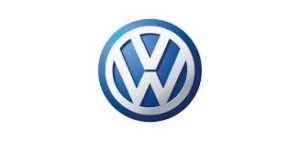VW Settlement Equals Opportunity for Fuels Marketers
“There are 2.7 billion reasons why this is important for the propane industry,” Mollie Odell, vice president of communications for the National Propane Gas Association, said of a $2.7 billion mitigation trust fund that Volkswagen AG and its subsidiaries have established as part of a settlement for emissions violations.
“This VW settlement represents some of the best market opportunities our industry has had in a long time,” Odell told Fuel Oil News.
VW was required to set up an environmental mitigation trust fund apart from the settlement used to fund renovations, to offset excess nitrogen oxide (NOx) emissions and the damage caused by its cheating on emissions tests from 2009 to 2015.
New York State is eligible for $117 million, said Matt Bisenius, who gave a presentation on the settlement on March 28 at the New York Propane Gas Association Spring Meeting in Albany, N.Y. The funds can be used for the purchase of alternative fuel vehicles including propane vehicles, said Bisenius, who is director of legislative affairs for NPGA.
“We’re going to be competing for these dollars with natural gas vehicles and electric vehicles and even new diesel vehicles,” Bisenius said. “We’ve had a lot of success over the last several years [with] school buses that run on propane being adopted by school districts. They like the emissions profile. They find that their refueling costs go down when replacing diesel. They save on maintenance. But it’s still a very small market.”
There are 12,000 school buses fueled by propane nationwide, Bisenius said. “That’s obviously a very small percentage of the total school bus market.”
NPGA, he said, looked at potential emissions savings if eligible diesel school buses were replaced with propane school buses. New York State has more than 17,000 school buses that are eligible under the terms of the settlement, Bisenius said.
“We’re able to show that at a minimum a new propane engine is roughly 18 percent cleaner on NOx emissions than a new diesel engine,” he said. Further, he noted that a new propane-fueled “ultra low-NOx engine coming on line this year” is expected to offer an 80% reduction in NOx emissions. “So we’re seeing NOx numbers that are approaching zero,” he said.
Asked how the states plan to manage and spend the money from the settlement, Bisenius said, “That is both easy and complex. Easy because each state has to meet defined criteria in the settlement. Where it gets complex is that each state is responsible to decide what projects and what vehicles to invest this money in.
“They develop these plans and submit [them] to the national trustee who then confirms that [they are] in compliance with the settlement checklist—and then the states will have that money to spend,” he said.
Bisenius added, “It’s complex for us, from the perspective of a national organization, because there are going to be fifty state plans.”—Stephen Bennett
